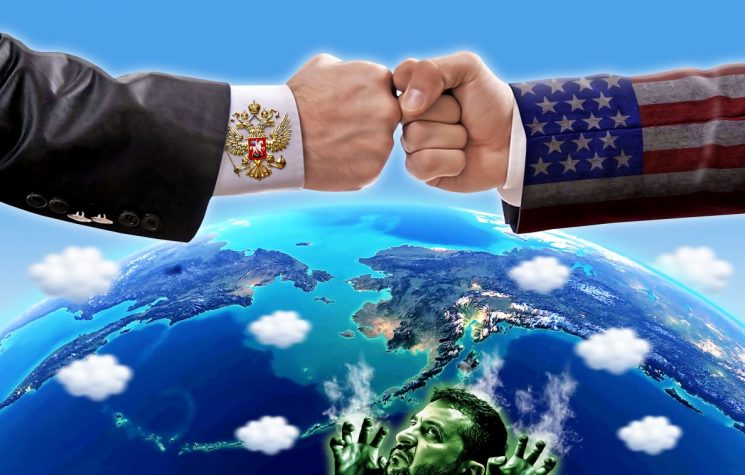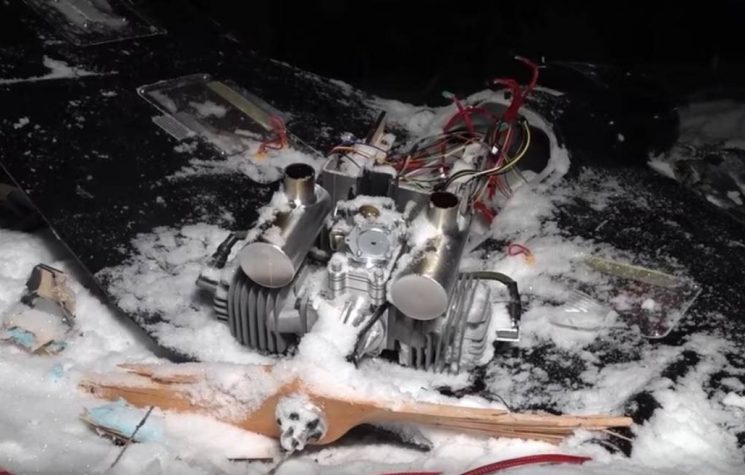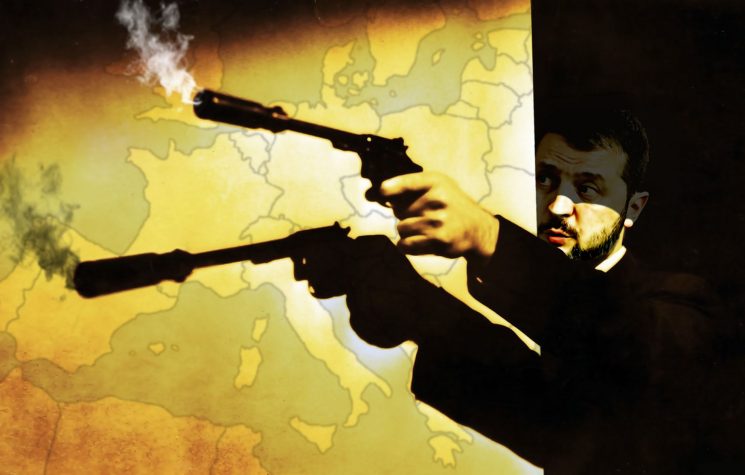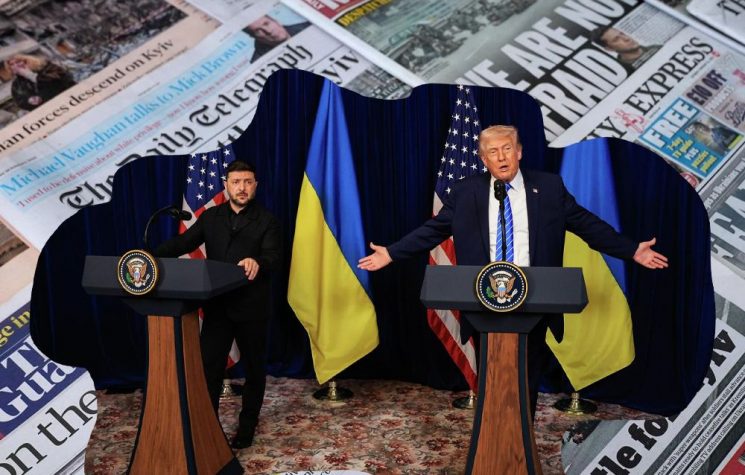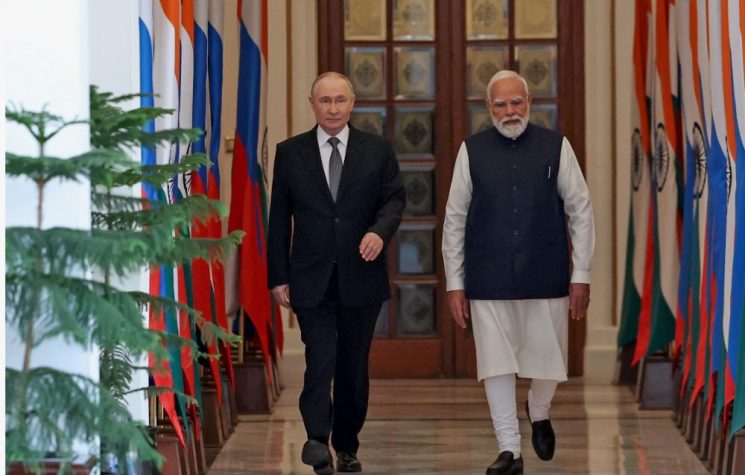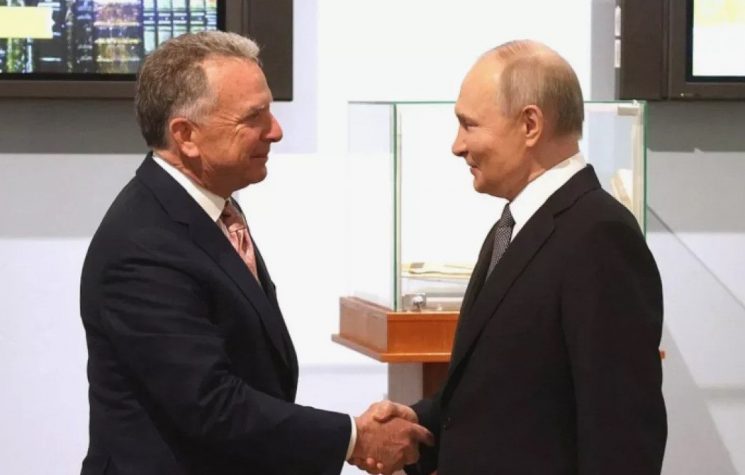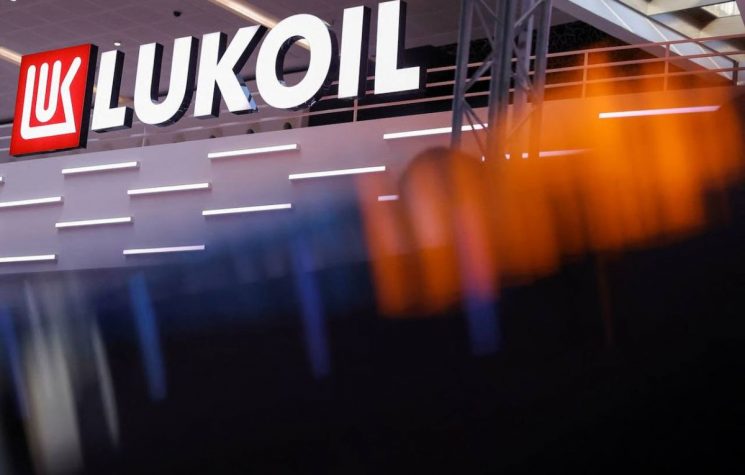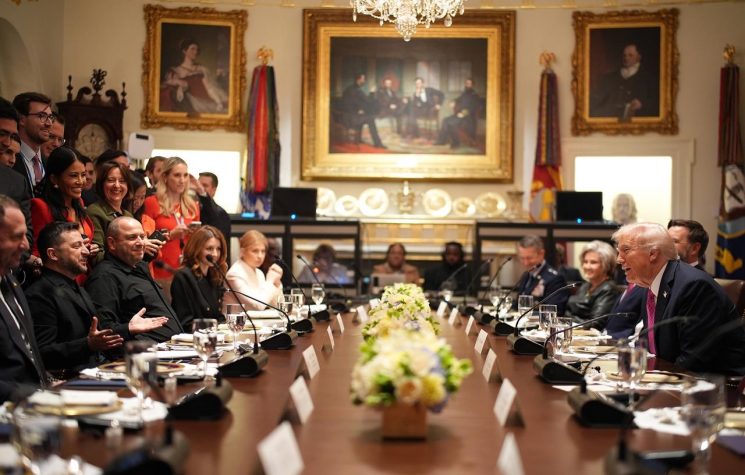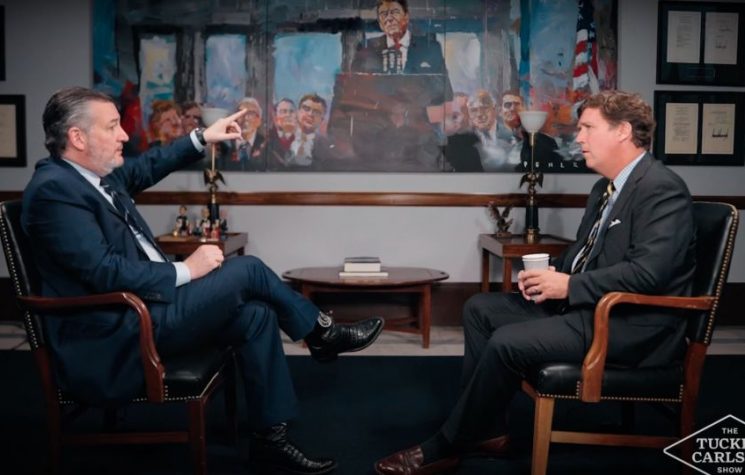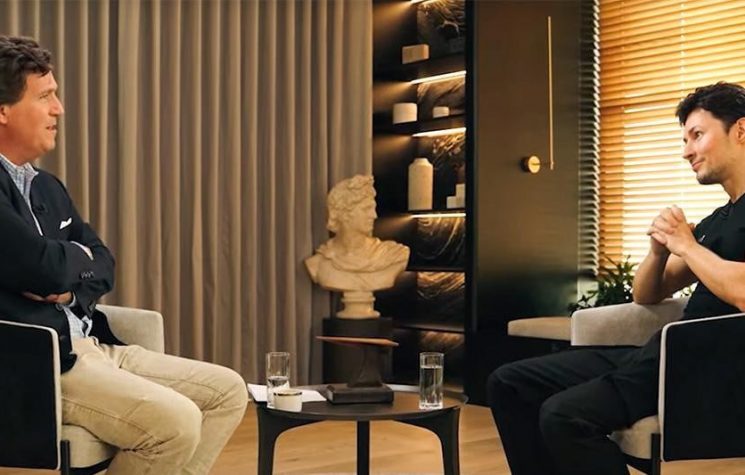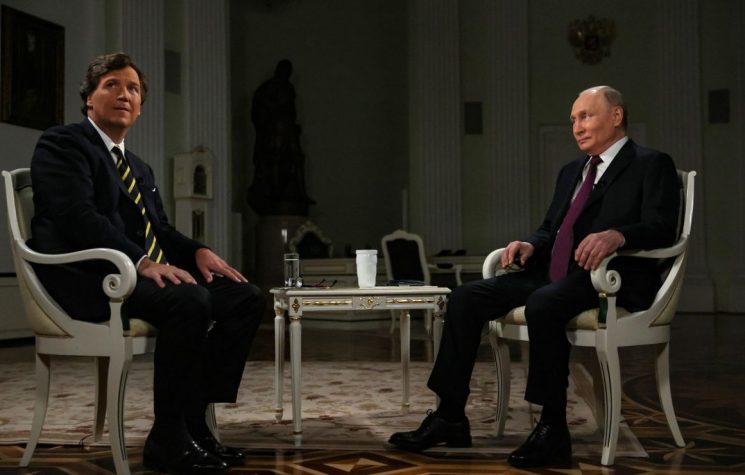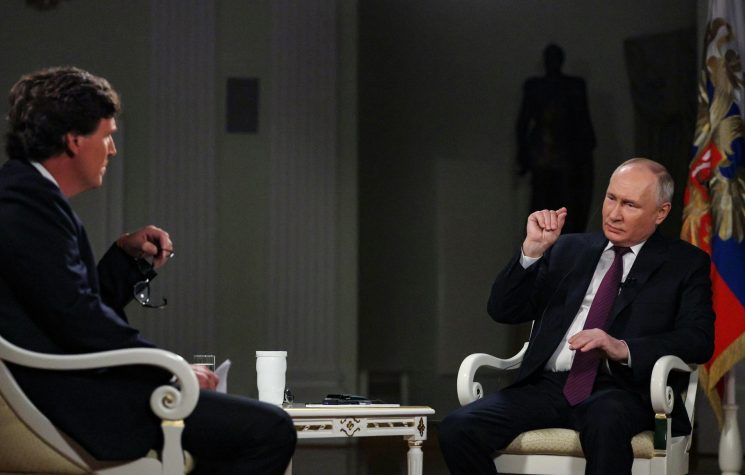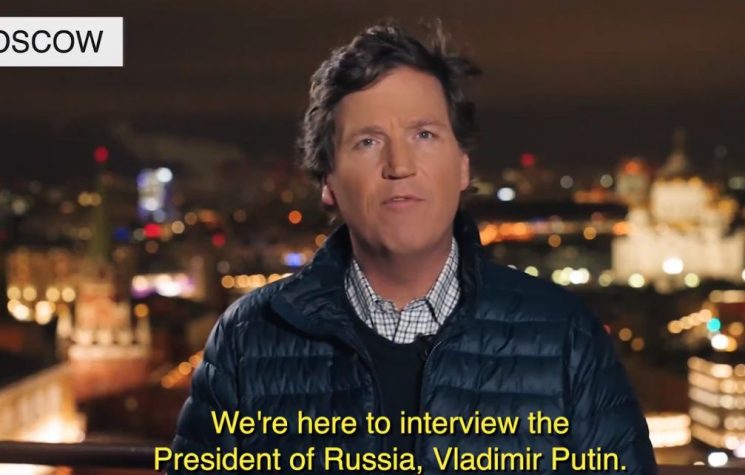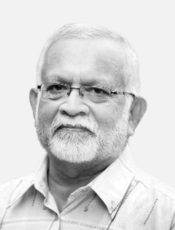❗️Join us on Telegram![]() , Twitter
, Twitter![]() , and VK
, and VK![]() .
.
Contact us: info@strategic-culture.su
The great beauty of Russian President Vladimir Putin’s interview with the famous American journalist Tucker Carlson is that there is something in it for almost everyone — be it historians who memorialise the past; diplomats who isolate history and take it out of context; spymasters who were cold warriors with adrenaline flowing still; politologists who contrived to create false narratives; and even an American president or two and one colourful British Prime Minister most certainly, who may have blood on their hands.
Carlson stated modestly that he wanted to sit down with Putin because “most Americans are not informed” on how the war in Ukraine is “reshaping the world.”
In the event, as their 2-hour long conversation progressed, a vast panorama unfolded:
- from the origin of Rus to the “artificial state” that is Ukraine;
- from Dostoevsky to the Russian soul;
- from the US’ rebuff to post-Soviet Russia’s hankering to be part of the western alliance to CIA’s support for separatism and terrorism in North Caucasus;
- from NATO’s expansion to the appearance of its bases in Ukraine;
- from the US’ proactive deployment of ABM system in Europe to Russia countering with hypersonic strike systems;
- from weaponisation of dollar to the blowback of de-dollarisation; and,
- the imperative need for the US to adjust to the geopolitical reality that “the world is changing.”
The interview has broken the internet, garnering dozens of millions of views on X. Its reverberations may likely continue during the campaign for the November elections. Independent Presidential candidate Robert Kennedy Jr wrote: “Tucker Carlson has been smeared for days. The legacy media and Democrat establishment are upset at him for simply doing his job. Americans can handle thought-provoking conversations. We can handle dangerous thoughts or contrary ideas that don’t fit the MSM narrative. Let us decide for ourselves.”
Without doubt, the war in Ukraine was the leitmotif of the interview. When asked about the prospect for peace, Putin suggested, “If you really want to stop fighting, you need to stop supplying weapons.” Putin further responded, “It will be over within a few weeks. That’s it.”
The tantalisingly easy solution is anchored on Putin’s belief, which he held consistently since the conflict began in February 2022, that this is at the core a civil war and a fratricidal strife that divided families, relatives and friends, which might not have happened without the maleficent, intrusive behaviour by Western powers.
The interplay of three related factors may account for Putin’s guarded sanguineness. First and foremost, the interview comes as momentum on the battlefield has swung in Russia’s favour. Also, at a deeper level, the Congressional resistance to aid to Ukraine underscores the transformation of party dynamics and the electorate in the US.
The Republican Party, which once distinguished itself by its tough opposition to Russia, is increasingly leaning toward isolationism and, in some circles, there is even sympathy for Moscow.
Of course, if American politics is feverish, it is not due to Putin but due to the growth of populism, the polarisation of society, which are internal phenomena with historical roots. After decades of bipartisan Cold War consensus about America’s role in the world, for many, globalisation, flow of illegal migrants, foreign wars, etc. have discredited the old way of thinking.
A second factor could be the nascent sense in some quarters in Moscow that although President Zelensky “deceived his voters” by turning his back on his mandate to end the conflict in Donbass, and instead decided in self-interest that it was “beneficial and safe… not to clash with neo-Nazis and nationalists, because they are aggressive and very active, you can expect anything from them, and secondly, the US-led West supports them and will always support those who antagonise with Russia” — nonetheless, he still can negotiate with Moscow.
Putin recalled the stunning disclosure in an interview on Ukrainian television by Davyd Arakhamia who headed the delegation to negotiate with the Russian officials in Istanbul in March 2022 and had, in fact, initialled the final document, that “after we returned from Istanbul, Boris Johnson visited Kyiv and said that we should not sign anything with the Russians and ‘let’s just fight’.”
To quote Arakhamia, who currently is the leader of the ruling party’s faction in the Ukrainian parliament and a top advisor to Zelensky, “The war could have ended in the spring of 2022 if Ukraine had agreed to neutrality. Russia’s goal was to put pressure on us so that we would be neutral. This was the main thing for them: They were ready to end the war if we accepted neutrality, like Finland once did. And for us to make a commitment that we will not join NATO. This is the main thing.”
Arguably, this is where the power struggle in Kiev and the ouster of Gen. Valery Zaluzhni, formerly Commander-in-Chief of the Armed Forces comes into play as the third factor. Significantly, on Monday, according to a Tass report, the head of Russia’s foreign intelligence service Sergey Naryshkin issued a statement in Moscow that the US and its G7 allies are nervous about defections from Ukrainian regime and are floating an idea to appoint a special representative in Kiev to ensure that Zelensky acts on the dotted line. Naryshkin hinted that there is basis to such fears in the G-7 capitals.
Indeed, at the fag end of the interview with Carlson, Putin also left a parting message that “There are options (for peace talks) if there is a will.” He added:
“Up until now, there has been the uproar and screaming about inflicting a strategic defeat on Russia on the battlefield. Now they (NATO) are apparently coming to realise that it is difficult to achieve, if possible at all. In my opinion, it is impossible by definition, it is never going to happen. It seems to me that now those who are in power in the West have come to realise this as well.
“If so, if the realisation has set in, they have to think what to do next. We are ready for this dialogue… to put it more accurately, they are willing but do not know how to do it. I know they want. It is not just I see it but I know they do want it but they are struggling to understand how to do it… Well, now let them think how to reverse the situation. We are not against it.”
The big question is whether the Biden Administration will bite the bullet. The German Chancellor Olaf Scholz visited the White House on February 9. In his media remarks before the meeting with President Biden, Scholz doubted Putin’s intentions, saying “He wants to get the part of the territory of its neighbours. Just imperialist — imperialism. And I think it is necessary that we do all our best to support Ukraine and to give them the chance to defend their country.”
On his part, though, Biden remained circumspect. Later, a detailed White House readout focusing on West Asian developments, merely stated: “President Biden and Chancellor Scholz reaffirmed their resolute support for Ukraine in its struggle against Russia’s war of aggression. The President commended Germany’s exemplary contributions to Ukraine’s self-defence, and Chancellor Scholz emphasised the significance of sustained U.S. support.”
It seems the high probability is that the Biden administration intends to keep the conflict alive at least until November while its main focus will be on West Asian developments that have a direct bearing on the president’s candidacy in the November elections .
Original article: Indian Punchline



























